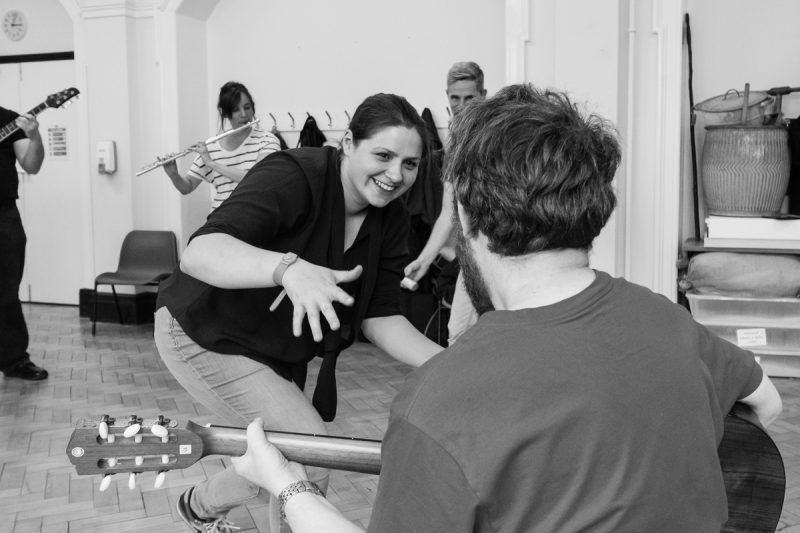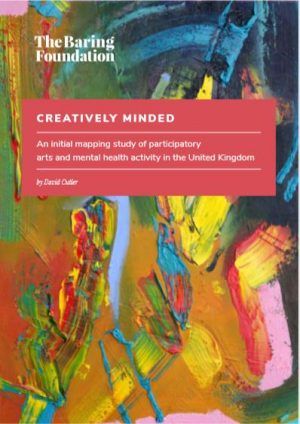Wellbeing. Resilience. Connectedness. These three themes have been at the heart of Soundcastle since we were founded in 2011 and feel, if anything, more relevant today than ever. In a time of social isolation we are using creative music-making to ensure that whilst our community members may be physically isolated, they are socially connected, valued and celebrated.
Time to pivot
Two hours before lockdown we received a grant to support Musical Beacons (our inclusive creative music making programme for families) in two safe houses in Sussex for women with young children who have been recently homeless and recovering from abuse/mental health challenges. We had been building these relationships for many months and then just as the funding landed, the doors closed, and a new strategy was needed. We considered the most obvious possibility of digital delivery via screens, however so much trust is needed to create a safe space and even with some of the most brilliant facilitators on our team, we all questioned whether this would be possible with a new, highly vulnerable group.
Fortunately, thanks to their fantastic staff team, we have now co-produced the idea of a remote music facilitation coaching programme for their project assistants. They have the trust, they are physically in the centres, they are eager to learn. This is brilliant because it means the project can reach these young families and also opens up new possibilities for the future of Musical Beacons. This move to remote support moves Soundcastle even more into a coaching space and challenges us to review our programme models and how they fit with our Theory of Practice. We champion community autonomy, yet our programmes often fill spaces with expert music facilitators which is beautiful but unsustainable without significant, long-term funding. This change in direction could see a new legacy for Musical Beacons, enabling us to design an adaptable model of working which we can expand and support other children’s centres/hospitals/ care settings to develop.
![]()
Soundcastle Online
Meanwhile, we have taken our core community programmes online via Zoom. Both Musical Beacons London and The People’s Music Collective (a creative ensemble for adults on a journey of mental health recovery) are now meeting weekly and connecting digitally. This has presented new questions and challenges for our team such as: ‘If we can’t play together, where is the satisfaction?’ ‘How can we ensure every voice is heard when a digital space is complex to read?’ ‘Could connecting and then disappearing actually deepen someone’s sense of isolation?’ All the project teams are meeting weekly for extensive planning and reflection sessions and we are constantly coming back to the questions of ‘How does this work support community wellbeing and how could we do this better?’
We are very conscious of the digital divide and that not every person, particularly those who come to our sessions, has the technology to join us online. When lockdown happened, we personally reached out to every member of our groups (through phone/ email/WhatsApp/ letters) to see how we could best support their engagement at this time. It transpired that for The People’s Music Collective, the challenge was more around engagement with technology rather than lack of it. This led to a series of one-to-one coaching calls, supporting individuals to download Zoom/practise joining a call/asking a question/ how to mute etc. The main challenge in the mental health space that we have found is ensuring that the group all feel heard, valued and respected. We have quickly established a way to ensure this is the case and still have a high (1:5) ratio of facilitators to community members on each call, as in sessions.

We are about to order some accessible (and beautifully colourful!) early years music and sensory resources to the Young Mother’s Service and will continue exploring ideas around Musical Beacons family packs as the programme evolves.
Supporting artist facilitators
I have spoken a lot about our programmes but one of our first responses was actually to set up a digital space for our freelance Associate Facilitator team. It has been brilliant to be able to continue offering work to our team throughout this time and their resilience and innovation has been completely inspiring.
We are also delighted to share that we have been awarded funding from Arts Council England to launch The Soundcastle Community – an online space for music makers and creative thinkers, open to our whole sector! We also have 18 funded places for music facilitators looking to explore their practice on a new Music & Wellbeing development programme, launching in July 2020.
Huge respect and solidarity to everyone who is supporting vulnerable communities through this surreal time. Your work inspires us to do what we do and then make it even more brilliant.
Keep singing,
Rachael
